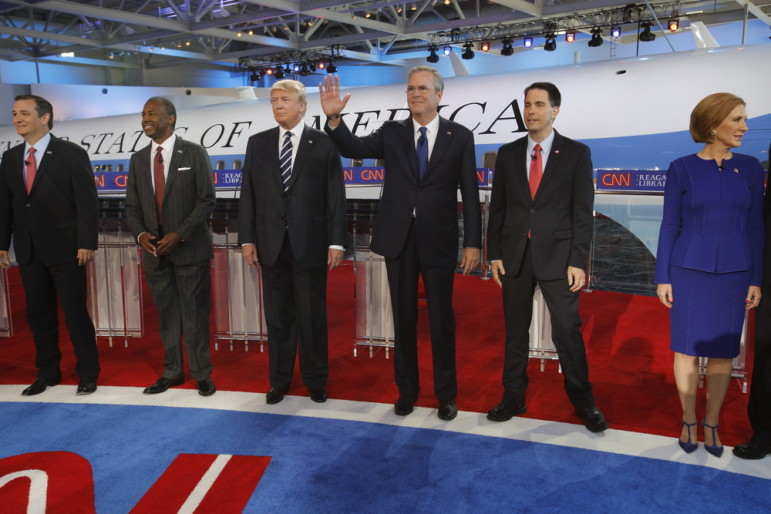
September 22, 2015; Politico
Some impact investments simply don’t pay off. In the hallways of the Bradley Foundation, that lesson may well be reverberating with the decision of Scott Walker to withdraw from the Republican scrum for a presidential candidate. According to Politico’s Shane Goldmacher and Alex Isenstadt, the campaign shutdown might not have been initiated by the governor but by his wife, Tonette, and his campaign manager, Mike Grebe.
Grebe is the longtime head of the Lynde and Harry Bradley Foundation, whose policy work constituted a virtual playbook for the Walker campaign. One of Walker’s four largest campaign or PAC donors was Wisconsin roofing business billionaire Diane Hendricks, a member of the Bradley Foundation board of directors, contributing $5 million to the pro-Walker Unintimidated PAC. Other Bradley Foundation insiders have also been long committed to the political aspirations of the Wisconsin governor, including, as NPQ wrote in April, Patrick English of Fiduciary Management and Schlitz beer heir Dave Uihlein.
Sign up for our free newsletters
Subscribe to NPQ's newsletters to have our top stories delivered directly to your inbox.
By signing up, you agree to our privacy policy and terms of use, and to receive messages from NPQ and our partners.
Although Grebe took the helm of the Walker campaign, he has been listed on the Bradley Foundation’s website as the president and CEO with no specific indication of his having taken a leave of absence. Grebe seems to have taken pains in the past to not talk Walker campaign business or Republican Party business in general inside the foundation, but we raised questions about Grebe’s ability to bifurcate his thinking into philanthropic and political tranches, especially with Bradley Foundation board colleagues like Cleta Mitchell, Art Pope, and George Will possessing prominent Republican credentials.
It would seem that the Bradley Foundation made a deep investment in Scott Walker’s candidacy, not necessarily as an explicit partisan political endorsement, but banking on Walker as an ideological model of the foundation’s long support of school choice, small government, reduction or elimination of public sector unions, and cutting back federal human services funding. The Walker investment hasn’t paid off.
There’s no arguing with the right of the Bradley Foundation to pursue its free market, privatization agenda through the support of conservative nonprofits, think tanks, and intellectuals. However, its close overlap with the Walker presidential campaign tied the Bradley Foundation’s philanthropic agenda to a losing presidential candidate and a very weak presidential campaign. Remember Walker’s compete-with-Trump dalliance with building a wall along the Canadian border? His “no opinion” stance on the refugee crisis? His lack of opinions on issues such as whether being gay is a choice, the topic of evolution, or birthright citizenship? The Walker campaign’s dissolution links a foundation proud of its conservative ideas to second-rate conservative policy thinking.—Rick Cohen













